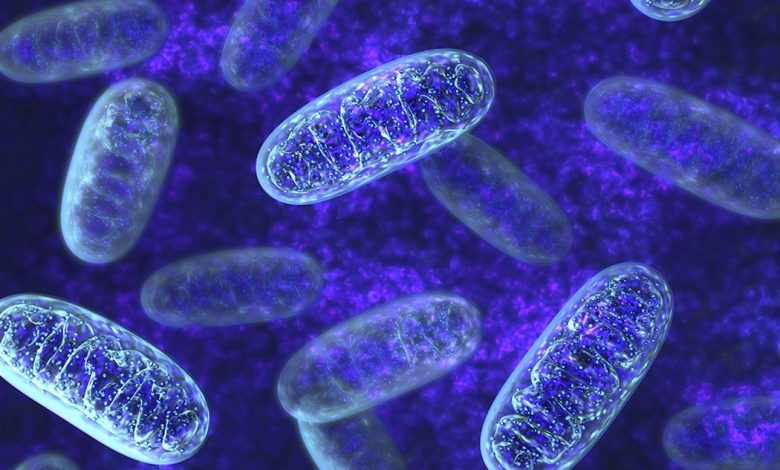Why Should You Care About Your Mitochondria?

Mitochondria take charge of your health since they are responsible for turning the energy to carry out tasks from the food you consume. They use the inhaled oxygen and convert the food’s nutrients into energy. About 60% of the cell’s volume is mitochondria. So, cells contain nearly 1,500 mitochondria-organelle, the cell’s power plant.
You need a lot of energy to ensure the carrying out of all bodily functions, and mitochondria are accountable for about 90% of the energy, which comes in the form of Adenosine Triphosphate (ATP).
ATP is what gives the body to perform all duties be it the functioning of the immune system or digestion. If the ATP molecules are less, the body will be weak, eventually susceptible to various bacteria and viruses. Thus, ATP helps the body survive. It gives the immune system the power and energy to stay strong and keeps us going.
Recent studies have found that mitochondria help in a range of other activities enabling the cells to efficiently and effectively function and maintain a healthy body. If you always feel fatigued, then chances are that your mitochondria aren’t functioning well.
How Do Mitochondria Relate to Health?
Poor mitochondria health leads to a host of health problems. When your mitochondria are not in the top shape, neither are your overall cells. You might age rapidly, put on weight, feel exhausted, your skin might look dull, and be prone to diseases, like cardiovascular disease, dementia, Alzheimer’s, Parkinson’s, migraine, diabetes, autism, and more.
Adding mitochondrial support supplementsto your diet can enhance your mitochondrial performance and lessen your future medical bills.
These mitochondrial diseases can get the best of you when your mitochondria cannot fulfill their primary purpose of producing energy. This happens due to genetic conditions, which may run in the family.
According to studies, every 30 minutes, a child born will develop mitochondrial disorder by age 10, and about one in every 4,300 people in the US have mitochondrial disease. Many a time, mitochondrial disease is misdiagnosed.
Taking mitochondrial support supplements under the guidance of your healthcare expert can improve your body’s vital functioning and increase energy.
What is the Role of Mitochondria?
Following are some of the important roles of mitochondria you should know:
- Production of ATP
As mentioned above, mitochondria play an essential role in the production of ATP, known as the cell’s energy currency. ATP maintains the body’s functioning but a slight dysfunction can lead to various diseases.
The production of ATP is the main function of mitochondria. It occurs by cellular respiration, also called aerobic respiration. There are three stages in the process of aerobic cellular respiration:
- Glycolysis
- TCA Cycle
- Electron Transport
2. Production of Heat
The production of heat is also referred to as thermogenesis. The heat can be produced by:
- Non-exercise activity thermogenesis
- Exercise-related thermogenesis: caused by movement.
- Diet-induced thermogenesis: body generates heat following the digestion process.
3. Storing Calcium
The calcium ion is stored in mitochondria and released when needed. Calcium has several essential functions in cells. It also helps in fertilization, muscle function, blood clotting, and several other things.
Calcium also plays a role in steroid synthesis, cellular metabolism, and hormone signaling.
4. Cell Death
Cell death is also referred to as apoptosis, which is a crucial part of life. Mitochondria decide which cells are to be destroyed once the cells become old. It releases cytochrome C, activating caspase, an important enzyme in eliminating cells during apoptosis.
How are Mitochondrial Diseases Diagnosed?
Diagnosing mitochondrial disease can be tough. Oftentimes, some other disorders that do not involve the mitochondria can be wrongly diagnosed as mitochondrial disease, and the opposite stands true too.
Many symptoms of mitochondrial diseases, like poor muscle tone, vomiting, poor stamina, developmental delay, short stature, seizures, constipation, or diarrhea, have various other causes. And because of this, it may occur not with a single symptom but two or three different ones.
The diagnosis of mitochondrial diseases starts with various tests that may include:
- A patient’s family history
- A complete physical examination
- Neurological test
- Metabolic tests, including urine and blood test
Other tests are also carried out depending on the patient’s symptoms.
How are Mitochondrial Diseases Treated?
Though there is no cure for mitochondrial diseases, certain treatments can help in reducing symptoms or slow down the decline of health. However, mitochondrial support supplements can help you strengthen your system and enhance your health.
Treatments of the mitochondrial disease include:
- Exercising
Resistance, strength training, or endurance exercise help in reducing the issue. Endurance exercise, like walking, running, dancing, swimming, and cycling. Resistance training, like knee extensions, sit-ups, weight lifting, etc, can be practiced.
- Vitamins and supplements
As stated above, mitochondrial support supplements are quite beneficial for your overall health. It helps in mitochondrial ATP production and removes toxic metabolites.
- Other treatment options
Conserving energy, speech therapy, occupational therapy, and respiratory therapy can be other options too.
People with mitochondrial diseases usually live a normal life. However, they can experience significant changes in their health over a short period. There’s no cure for these conditions, and research is still ongoing. However, you can go for regular health check-ups to avoid unnecessary problems in the future.






